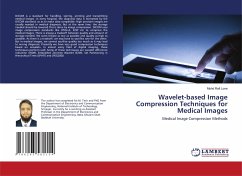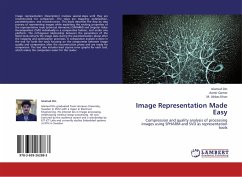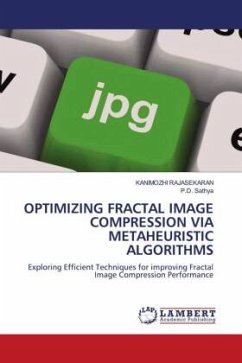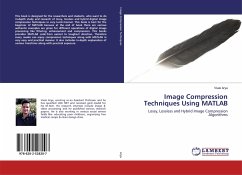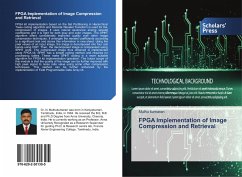
Quality Estimation in Image Processing Using Wavelet Families
Wavelet, Image compression, Quality estimation
Versandkostenfrei!
Versandfertig in 6-10 Tagen
45,99 €
inkl. MwSt.

PAYBACK Punkte
23 °P sammeln!
Compression of digital images has been a topic of research for many years and a number of image compression standards have been created for different applications. The role of compression is to reduce bandwidth requirements for transmission and memory requirements for storage of all forms of data. While today more than ever before new technologies provide high speed digital communications and large memories, image compression is still of major importance, because along with the advances in technologies there is increasing demand for image communications, as well as demand for higher quality im...
Compression of digital images has been a topic of research for many years and a number of image compression standards have been created for different applications. The role of compression is to reduce bandwidth requirements for transmission and memory requirements for storage of all forms of data. While today more than ever before new technologies provide high speed digital communications and large memories, image compression is still of major importance, because along with the advances in technologies there is increasing demand for image communications, as well as demand for higher quality image printing and display. The evolution in image compression is mainly attributed to the need of rapid and efficient techniques for the storage and transmission of data among individuals. In this book, we studied the performance of different wavelet basis functions for image coding algorithm. We characterized the performance of the wavelet coefficients and the coding algorithm by calculatingthe compression ratio, root mean square error, peak signal to noise ratio, redundancy, entropy and retained energy of the reconstructed grey scale as well as color images




